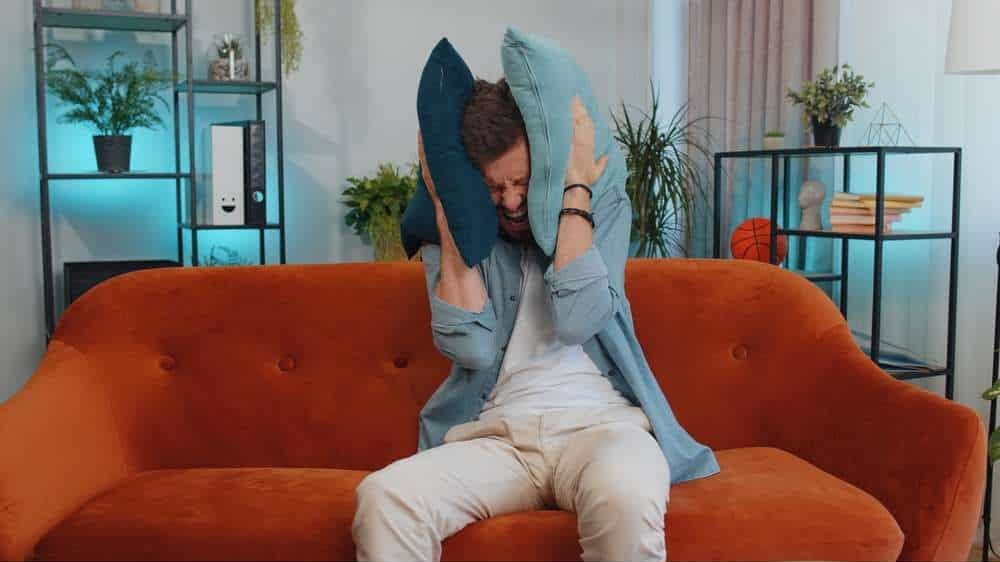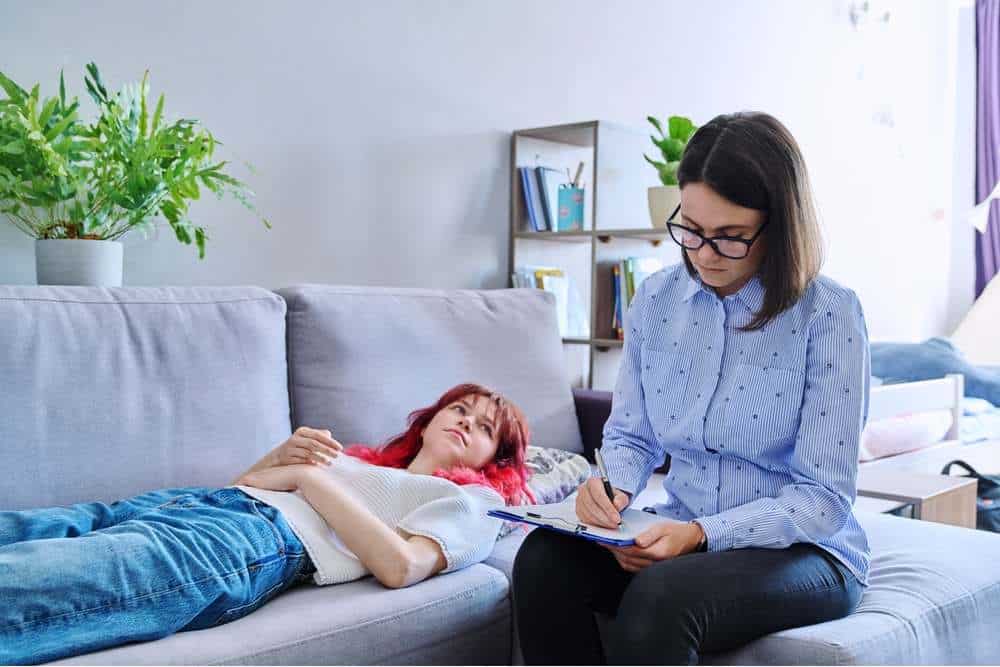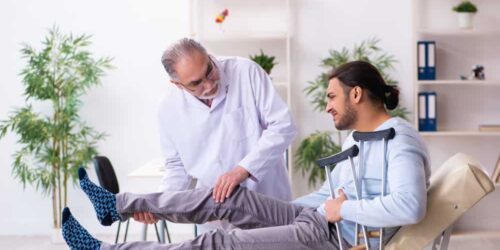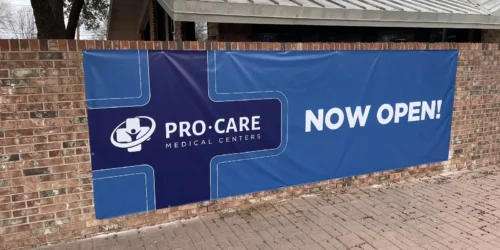Car accidents are often scary, disorienting, and life-changing. While you may think the only type of car accident injury you can sustain is physical, an estimated 9% of those involved in a car accident will be diagnosed with PTSD, or post-traumatic stress disorder.
PTSD from a car accident can impact your life in a huge way. The symptoms of PTSD can affect your sleep and your ability to drive, and even alter your fight-or-flight response. If left untreated, a person can be susceptible to triggers and be unable to move forward in life in a healthy way.
Why Does PTSD Happen In A Crash?

Post-traumatic stress disorder (PTSD) is a psychological condition categorized as an anxiety disorder. PTSD often follows a traumatic event involving death, potential death, a threat to oneself or a loved one, or serious injury.
Even a car accident classified as minor can cause PTSD. Car accidents come with a lack of control that is hard to reconcile, even in minor accidents. If you have a perception that your life was in danger, you are at a higher risk of developing PTSD following a car accident which leads to avoidance behaviors that reinforce the fear of cars and driving.
In the first 30 days following a car accident, studies have shown that PTSD is present in approximately 25-33% of car accident victims, and just over 7% develop lifetime PTSD.
Common Signs of PTSD After A Car Accident

Most signs and symptoms of PTSD can be divided into four categories; intrusive thoughts and feelings, negative mood alterations, avoidance behaviors, and increased reactivity. These can be further broken down into observable symptoms that can manifest immediately after an accident or take as long as a year to develop.
You may have feelings of shock and disbelief at the situation immediately following a car accident. Feeling disconnected from the situation is another common reaction.
Signs and Symptoms of PTSD can include:
- Anxiety and Depression
- Intense fear when confronted with cars
- Intense fear, even when not around cars
- Sleep disturbances
- Recurring nightmares
- Flashbacks of the accident
- Avoidance behaviors (mentioned above)
- Avoiding driving
- Avoiding social events
- Avoiding places with loud noises
- Increased irritability
- Guilt
- Isolation
How Long Does PTSD Last After A Car Accident?

Many factors play into how long PTSD may last following the initial onset of symptoms. Symptoms may begin immediately following your car accident or may begin as late as a year following. Risk factors may contribute to PTSD development and its duration.
Risk factors include, but are not limited to:
- Previous history of a traumatic event
- A previous history of traumatic events puts you in a situation where your fight or flight response is already more heightened. With the occurrence of another traumatic event, this can become worse and lead to PTSD.
- Personal or family history of mental illness
- It is hard to cope with pre-existing mental stressors in the midst of a high-stress event like a car accident.
- The risk to your life was significant in the car accident
- The feeling of an utter lack of control over your own life is a significant contributing factor to PTSD.
- A fatality occurred during the car accident
- You lack a support system post-accident
- Without a support system, you can feel isolated, and it compounds on top of other PTSD symptoms following a car accident.
- Severe pain following the car accident
- High levels of pain put you at a higher risk of developing PTSD.
While you can’t always prevent PTSD from developing, there are certain activities and behaviors to avoid after suffering a traumatic event. These activities can put you at risk for worsening and prolonged PTSD.
- Avoid the use of drugs and alcohol
- Avoid dangerous or high-risk activities
- Don’t avoid talking about or processing your feelings
- Don’t make any major life changes or life-altering decisions following a car accident.
Car Accident PTSD Treatment & Therapy Options

If you believe you are struggling with PTSD following a car accident, it is important to reach out to your doctor as soon as possible. They can help establish what symptoms you are experiencing and determine the best way to treat them. PTSD is treated in a variety of ways and, most often, in a combination of approaches. Below are several treatment options for PTSD.
- Psychotherapy – Therapy is a key component of PTSD treatment. A qualified counselor can help you understand what happened and why it is causing changes in your behavior, mood, or even thinking process. Types of therapy can include:
- Cognitive Behavioral Therapy
- Talk Therapy
- Eye movement desensitization and reprocessing (EMDR)
- Cognitive Processing Therapy
- Medications – Currently, there are no specific medications developed to treat PTSD, but there are many anti-depressant and anti-anxiety medications that can help with mood stabilization and help mitigate symptoms of PTSD
- Virtual Reality Exposure – Virtual Reality Exposure is a newer form of treatment for PTSD. It is exposure therapy but through virtual reality. This has been shown to allow patients to feel more in control of the situation.
Coping with PTSD After A Car Crash

Learning to cope with PTSD following a car crash can seem overwhelming, but there are many techniques and activities that help mitigate symptoms and promote healing. First-line interventions for PTSD are generally psychotherapy and time. Some people experiencing PTSD can see a resolution or significant lessening with distance from the accident.
- Psychotherapy can help you on the journey to understanding why you are feeling this way. Therapy can give you coping tools when dealing with the emotional responses to a car accident.
- Giving yourself time to heal physically and emotionally is paramount to coping with PTSD.
- Find activities and techniques that promote relaxation. If you can help mitigate the physical symptoms of PTSD, managing can become easier. Activities such as meditation or yoga can help find this inner calm.
- Exercise is a great way for your body to release endorphins which help improve your mood! And feeling better physically can help soothe your mind.
- Having a support system to help when things get tough can make all the difference in living with PTSD.
Pro-Care Can Help with PTSD
It can be scary to face any injury, whether mental or physical. At Pro-Care we have a team of dedicated doctors, chiropractors, and counselors to help you get back to the life you deserve. Call Pro-Care today and we’ll get you scheduled for an appointment!



